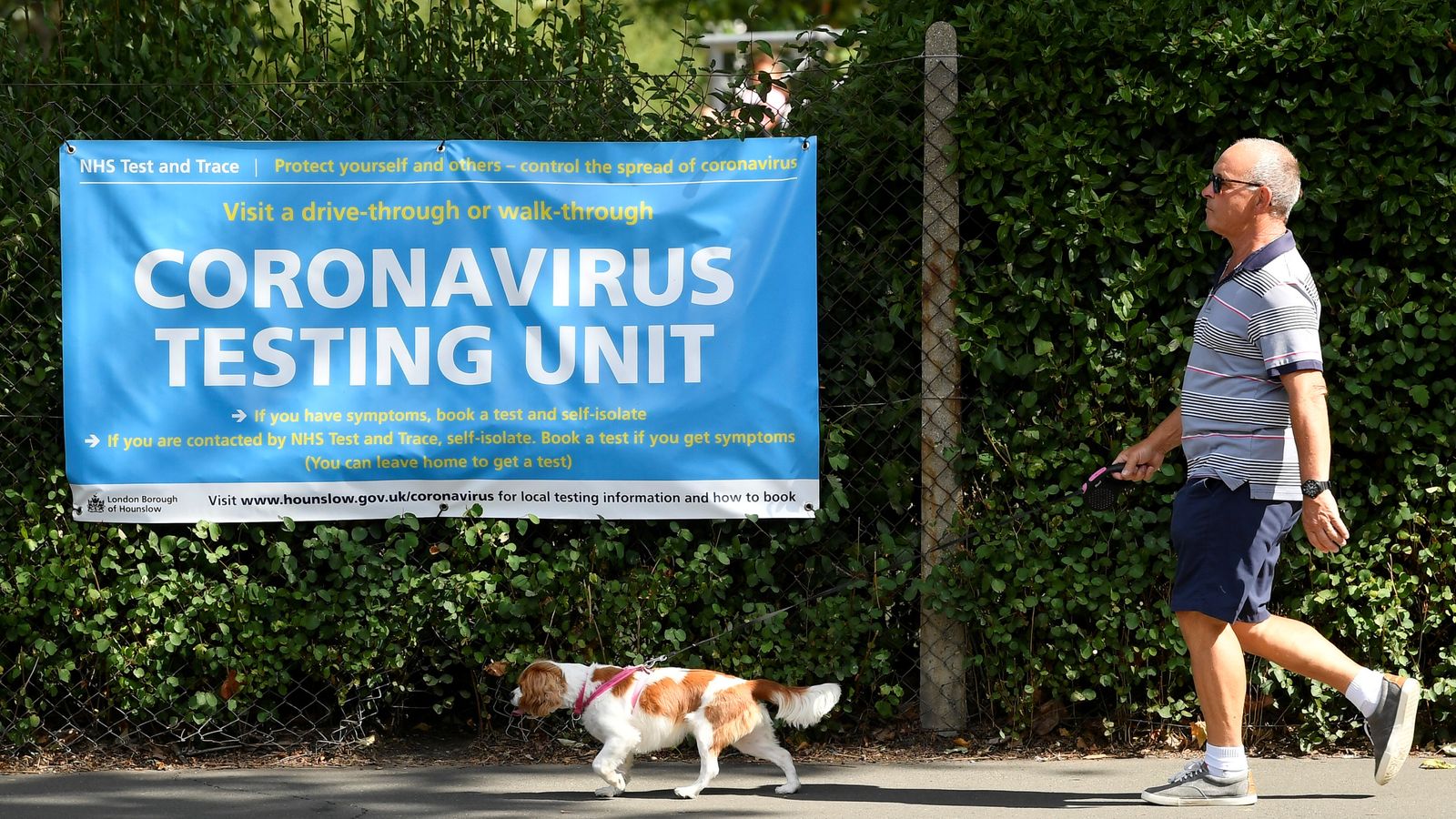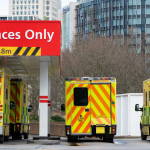England’s R number has dropped slightly to between 1.2 and 1.4 despite an increase in coronavirus infection rates across the UK.
The R number – which represents the average number of people each COVID-positive person goes on to infect – was between 1.2 and 1.5 last week.
An outbreak can grow exponentially when the figure is above 1. When it is below 1, it means the outbreak is shrinking.
The current figure means that, on average, every 10 people infected with the virus will go on to infect between 12 and 14 others.
The growth rate for the virus in England shows the number of new infections is growing by between 4% and 7% every day. Last week, that figure was between +3% and +7%.
It comes as COVID cases hit 48,553 – the largest number for exactly six months – with one in 95 people in England infected, according to new figures.
Data published by the Office for National Statistics (ONS) shows that more than half a million people in private households in England are likely to have had COVID-19 in the week to 10 July.
The estimate for the number testing positive – 577,700 – is the equivalent of around one in 95 people, up from one in 160 people in the previous week, and the highest number since the week to 6 February.
It is more than five times the figure a month ago. In the week to 12 June, the estimate was 105,000 people
While vaccines have kept hospitalisations low, England’s chief medical officer Chris Whitty has still warned that the number of people being treated in hospital with COVID-19 could reach “quite scary” levels within weeks.
Speaking on Thursday evening, Prof Whitty said the number of people in hospital with COVID-19 is doubling around every three weeks and could hit “quite scary numbers” if that trend is sustained.
Professor James Naismith, director of the Rosalind Franklin Institute at from the University of Oxford, said it was a “reasonable assumption” that cases will continue to grow and will accelerate after Monday’s further easing of restrictions in England.
He added: “We are doubling cases every 12 to 18 days. Vaccination will act as a drag on the rate of spread thankfully.
“The vaccine rollout across US, EU, UK, China and other developed countries is encouraging. Tragically, Delta will cause a catastrophe in less developed countries where vaccination coverage is low.
“New cases of Delta will lead to long COVID, hospital admissions and deaths.
“The ratios between these have been massively changed by the safe and effective vaccines we are administering, but the link is not eliminated.”






















